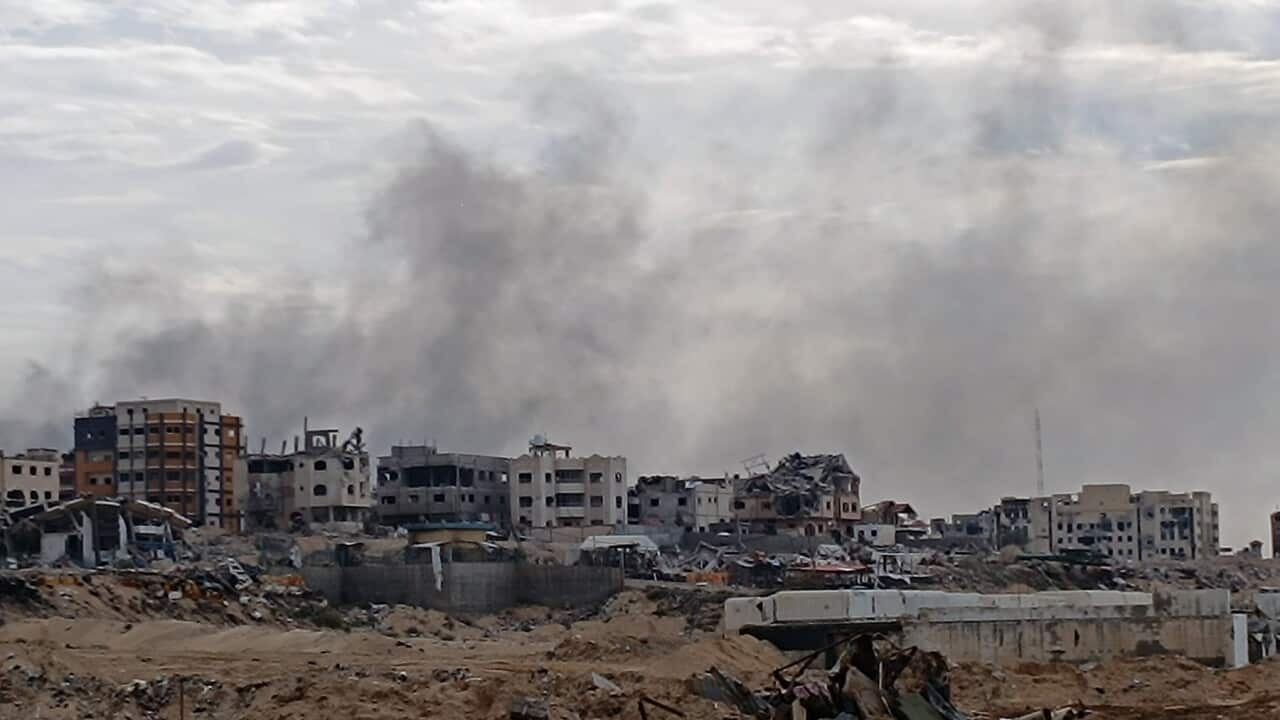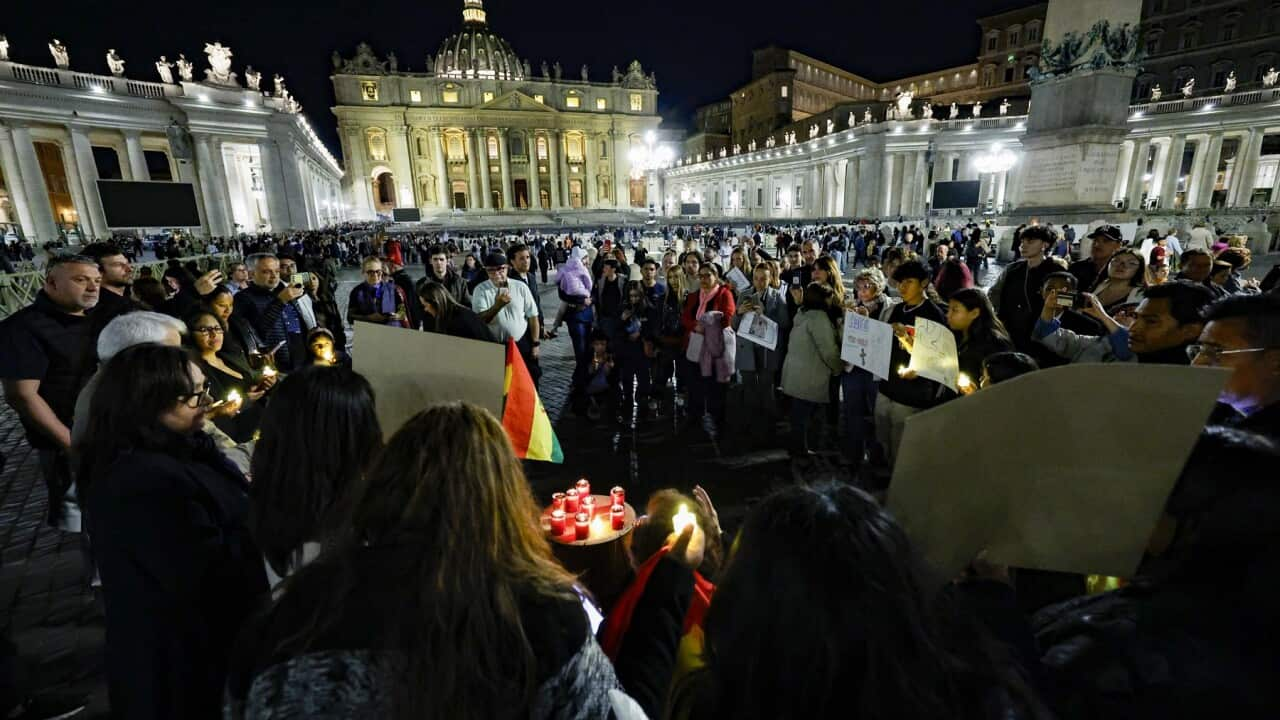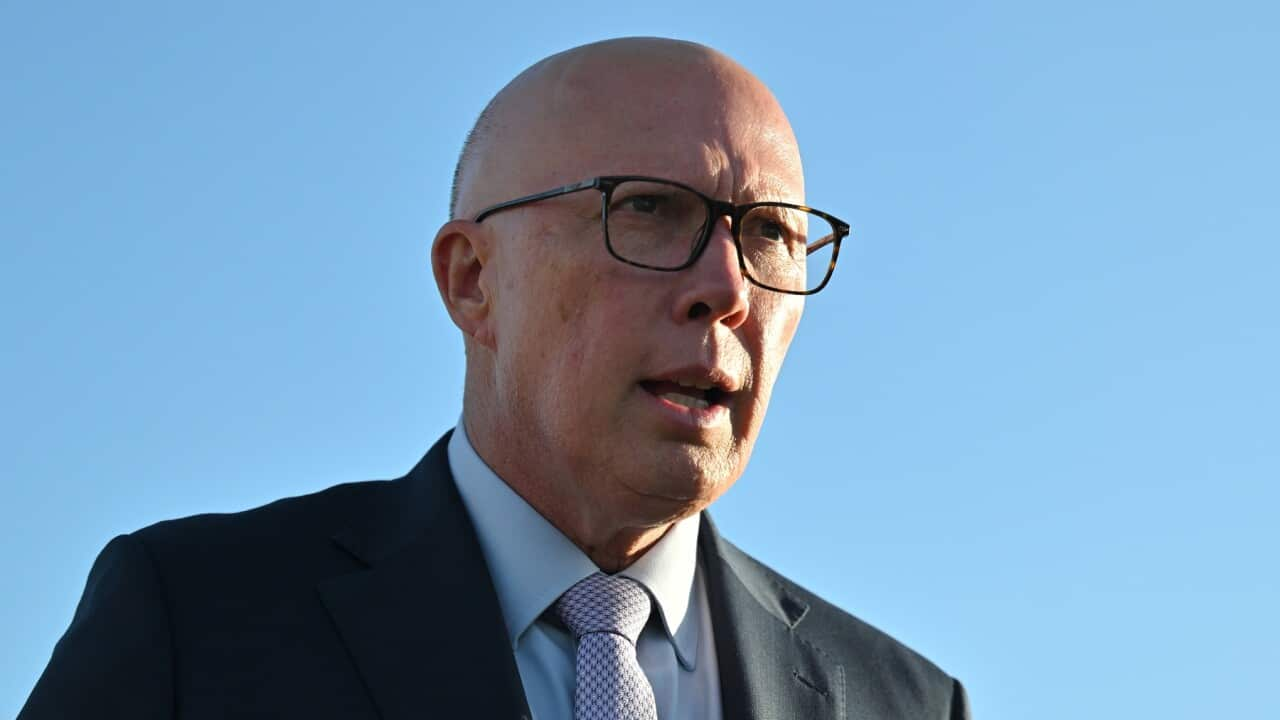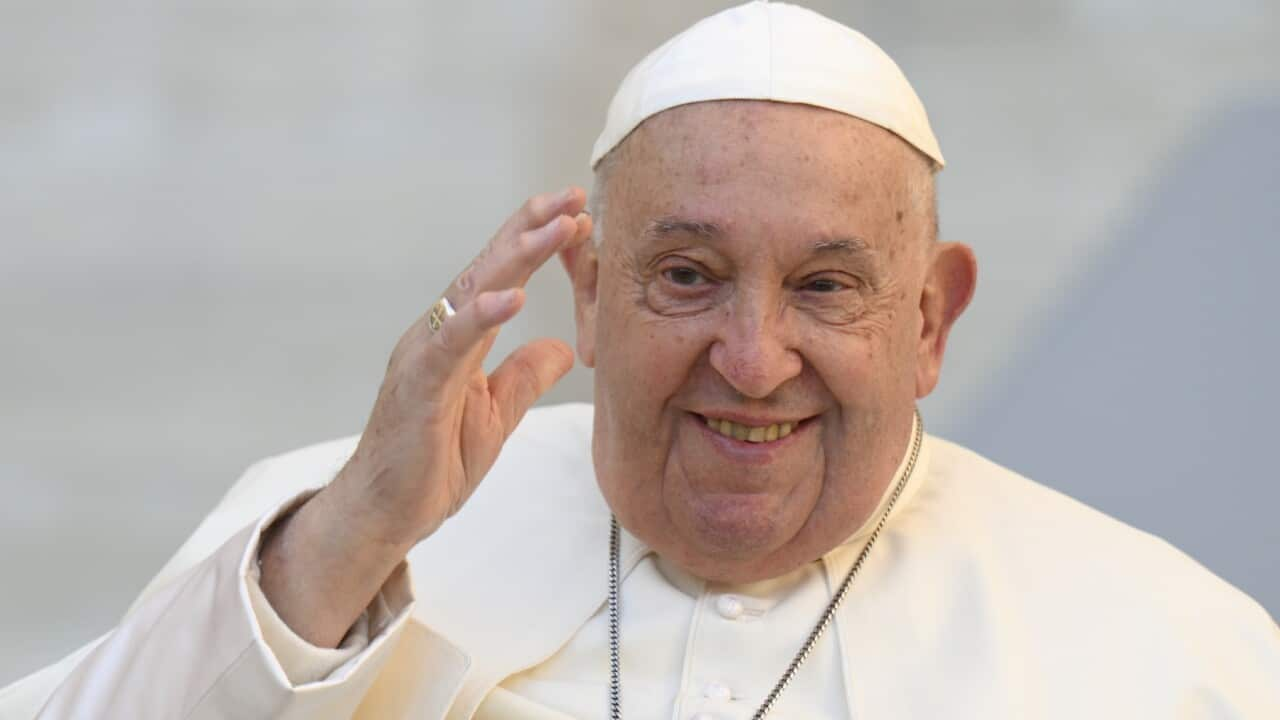TRANSCRIPT
After weeks of fighting in and around Gaza, Hamas has announced there will be a four-day pause to fighting - but the timing remains unclear.
Hamas claimed it would begin Thursday 7pm Australian time , but an Israeli security adviser says no Israeli hostages will be released by Hamas before Friday.
Israeli Prime Minister Benjamin Netanyahu has emphasised Israel's war against Hamas will continue after the temporary ceasefire expires.
"I want to be clear. The war is continuing. The war is continuing. We will continue it until we achieve all our goals of returning all our abductees, eliminating Hamas and guaranteeing that after Hamas, Gaza is not to be controlled by a party that supports terrorism, that educates its children for terrorism, that funds terrorists or their families. Gaza will no longer pose a threat to Israel."
The temporary ceasefire will allow for the release of 50 Israeli hostages taken by Hamas, and 150 Palestinian women and teenagers held in Israeli jails are expected to be freed.
Palestinian Representative to the United Nations Riyad Mansour says the ceasefire does not indicate a resolution to the conflict.
"The atrocities we have witnessed these last few weeks should lead us to the only conclusion possible: there is no military solution to this conflict, only a political one. And there is no peace possibility in the Middle East without resolving the question of Palestine, without the attainment of the inalienable national rights of the Palestinian people."
The families of Palestinian prisoners whose relatives are set to be released say they are hopeful for the future.
Raida Awad, whose son Ahmed Awad is set to be released, says she's overjoyed.
"Thank God. I was surprised to learn that my son will be released as part of a prisoner exchange deal. I heard about that today at 8:30 a.m. that deal. Praise be to Allah! This is a great joy, and I hope that other mothers of prisoners will also rejoice in the release of their sons."
Meanwhile, 63-year-old Israeli grandfather, Gilad Korngold, says he was glued to the TV waiting for news of a possible hostage deal.
Seven members of his family are said to have been taken by Hamas gunmen from Israel - including his 38-year-old son, daughter in law and their two children.
"We need to know if they're alive, if they're okay. It's the minimum. The minimum. This is a war crime, they're civilians. We ask: release, release the children and the women at once. It's impossible to bargain with children. No food, no gasoline, no solar, nothing. Children and women must be released immediately."
The deal, struck after lengthy and complex talks mediated by Qatar, the United States and Egypt, comes more than six weeks after the conflict began on October 7, when Hamas launched attacks from Gaza into southern Israel, killing at least 1,200 people.
Gaza's Hamas-run health ministry says more than 14,000 people - including more than 5,000 children - have been killed during Israel's counter-offensive.
The head of the United Nations children's agency, Catherine Russell, says the Gaza Strip is the most dangerous place in the world to be a child, and says the temporary ceasefire is far from enough.
Back home, Prime Minister Anthony Albanese told the ABC the federal government welcomes steps towards a ceasefire.
"It can't be one sided. But we need to make sure that what we've seen occur beginning with the terrorist action October 7, of course, was just devastating. And since then we've seen too much life being lost. And so we welcome any steps towards ceasefire. And we want to see, of course, a long term solution as well. We want to see political settlement that leads to two states. We want to see Palestinians and Israelis living in security in the region."
Foreign Minister Penny Wong has reaffirmed the government’s commitment to ensuring appropriate security checks are in place for Palestinians who will be granted Australian visas.
Ms Wong has confirmed over 800 temporary visas have been granted to Palestinians as well as almost 1,800 to Israeli nationals.
She told the ABC the appropriate checks are being made before visas are issued.
"These are people who have applied. They go through the usual security checks, the usual identity checks, the usual character checks, and have been granted visas. Obviously just because someone has an Australian visa does not mean that they are able to leave where they are. And there are many people in Gaza who we have been trying to assist. As you know, border crossings have not been opened fully. So I would make the point, the grant of visas doesn’t mean that people will be able to leave. Obviously, the situation on the ground is still very difficult."
But Opposition Homes Affairs spokesman James Paterson told Sky News the Coalition isn't convinced.
"There needs to be rigorous scrutiny of the granting of the visas to those people, in particular to make sure that all of the usual security checks and processes were followed, and that no corners were cut and nothing was rushed in the granting of these visas because 860 visas in a six week period in a conflict zone in which the Australian government has no presence on the ground is a very large number of visas in a very short period of time, and I am looking for reassurance from the government that no corners have been cut in granting of those visas."













